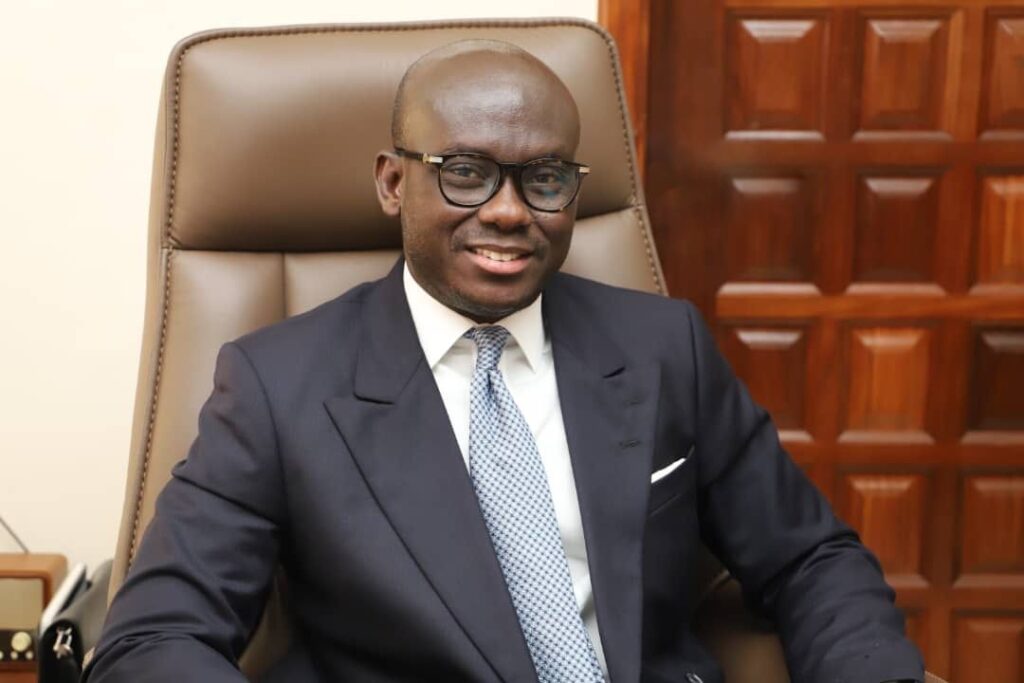By Prince Ahenkorah
The political and legal fallout from the controversial ambulance procurement case deepened this week as former Attorney-General Godfred Yeboah Dame appeared before the Criminal Investigations Department (CID) in Accra to respond to allegations of misconduct.
The move followed a formal petition by Richard Jakpa, a National Security operative and third accused in the case, who claims Dame, a personal friend and former classmate of the Director General of the CID, COP Lydia Yaako Donkor, attempted to fabricate evidence and influence his testimony.
While Dame maintains his innocence, the spectacle outside the CID headquarters on Monday underscored the political sensitivities surrounding the case.
A group of young loyalists self-styled “Former A-G Boys” staged a dramatic show of support, donning custom T-shirts emblazoned with “Don’t Defame Dame” and chanting slogans that momentarily disrupted security operations.
Police restrained the group without incident, but the optics were unmistakable: the former Attorney-General is not without his defenders.
Inside the CID, Dame submitted a 50-point rebuttal, dismissing Jakpa’s claims as “baseless” and “a desperate ploy to obstruct justice.” He denied any fabrication of evidence, insisting that the prosecution’s case had been fully filed by February 2022 and that the High Court had already ruled on the matter in March 2023.
Dame argued that Jakpa’s complaint stems from personal frustration after failed attempts allegedly involving Supreme Court Justice Yonny Kulendi to persuade Dame to drop the charges.
“The complaint seeks to relitigate issues already adjudicated upon by a competent court,” Dame stated, citing Justice Afia Serwaa Asare-Botwe’s 2024 ruling, which found no evidence of prosecutorial misconduct. He further claimed that both Jakpa and Finance Minister Dr. Cassiel Ato Forson had privately pressured him to discontinue the case, but he refused.
Dame acknowledged that his only interactions with Jakpa outside court occurred at Justice Kulendi’s residence, describing the judge as a long-time colleague. “There would have been no ‘Dame Jakpa’ without Justice Kulendi,” he said, defending his presence at the meetings as a matter of professional courtesy.
He also revealed that Jakpa had sent him 68 WhatsApp messages, of which he responded to only two a fact Jakpa admitted in court.
The alleged incriminating conversation, secretly recorded by Jakpa, was misdated and, according to Dame, misrepresented. “The so-called evidence is a secret recording of a telephone conversation that never happened on the date claimed,” he said.
Outside the legal arena, the case has ignited fierce debate over media influence and political loyalty. Lawyer Kobby Amoah, speaking to journalists at the CID, condemned what he called “trial by media,” urging respect for due process and the presumption of innocence.
The “Don’t Defame Dame” campaign has since gained traction online, with supporters rallying behind the embattled former minister. Critics, however, question the appropriateness of such public demonstrations at a time when judicial independence and prosecutorial integrity are under scrutiny.
The case has exposed fault lines within Ghana’s justice system and political establishment. With Dame invoking res judicata and institutional precedent, and Jakpa alleging behind-the-scenes coercion, the battle is as much about legal definitions as it is about reputational survival.


